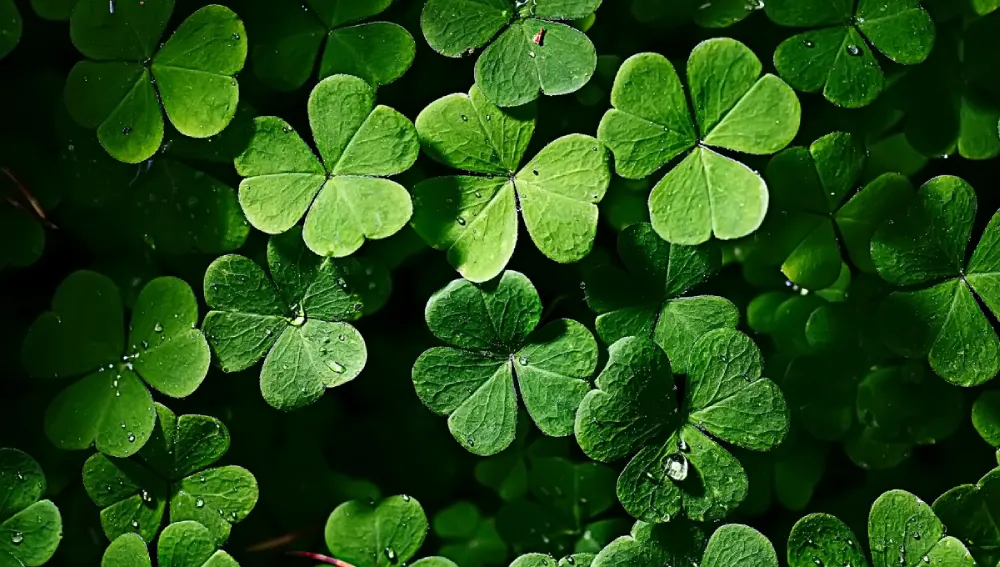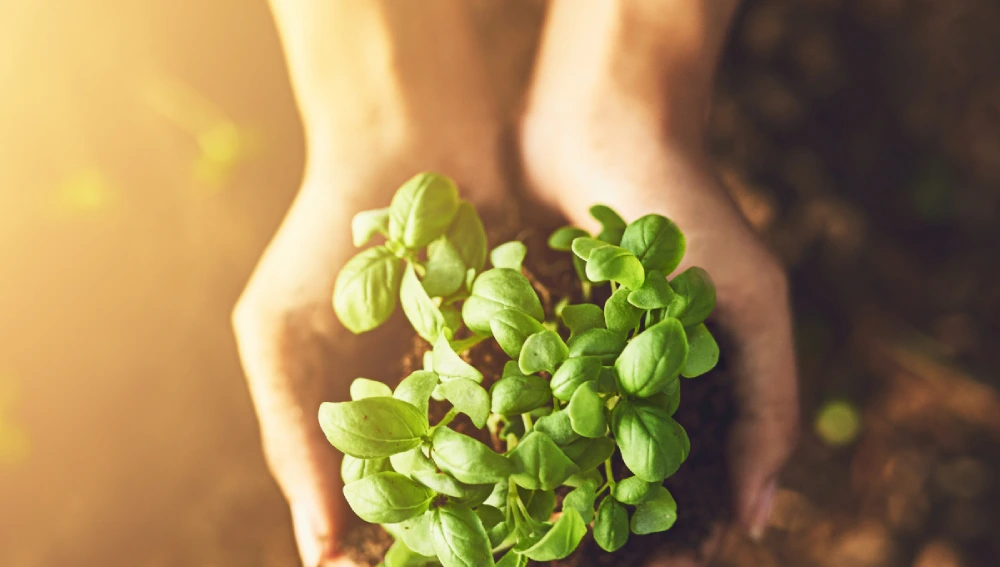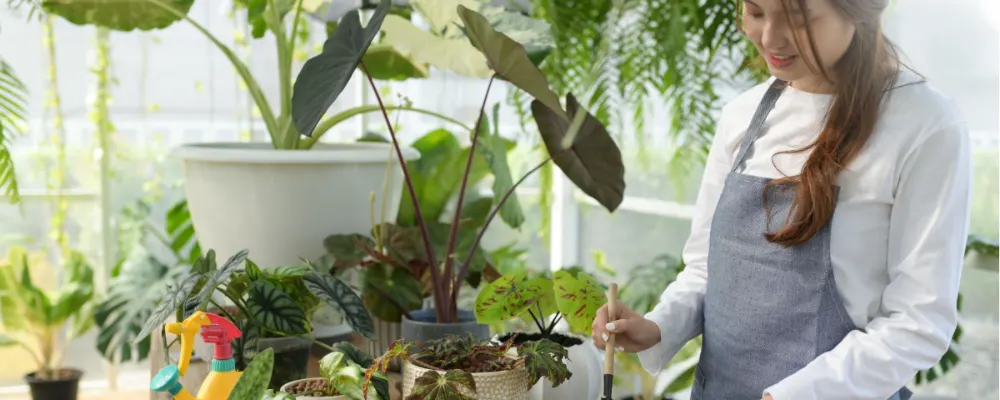‘Plant seeds of happiness, hope, success, and love; it will all come back to you in abundance. This is the law of nature.’
Creating serenity in our living space is an art. This art is classic wisdom that has been, passed down through generations. Vastu Shastra, an ancient Indian science that literally means ‘science of architecture,’ deals with the principles of design, layout, measurements, ground preparation, space arrangement, and plants. It emphasises the importance of integrating architecture with nature in our living space for positive vibrations. Vastu plants have an aesthetic appeal that can influence harmonious and peaceful living. It is capable of attracting positivity and promoting our well-being.
In this article, let’s explore various vastu plants and their benefits. Keep reading!
Vastu Shastra Plants

In this trending world, people fail to pay attention to vastu, without realiszing that it can be a game changer. Vastu plants, a key element in Vastu, connect our living space with nature by enhancing their aesthetic quality and adding charm to our good fortune. There are many vastu plants available in the market. The top 10 vastu plants for home are given below, which gives prosperity and positivity.
1. Money Plant (Epipremnam Aureum)
The money plant, scientifically known as ‘Epipremnam Aureum’ is a popular indoor plant, believed to carry fortunes because of its purported capability to entice wealth and prosperity. According to Vastu, it should be placed in either the north or northeast direction of your home. The money plant’s vibrant greenery leaves symbolise financial growth and abundantly enhance economic prospects. It is considered a good luck plant because it can amplify wealth and success. With low maintenance, it can thrive under low light and infrequent watering. It is easily available in almost every place or can be bought from online retailers. Thus, money plants add aesthetic looks to your indoors and bring good fortune.
2. Bamboo Plant (Dracaena sanderiana)
As per Vvastu, the bamboo plant is regarded as auspicious and brings joy, health, good fortune, fame, peace, and positive energy. It is believed that if this plant is placed in the east or south- east direction, either in the bedroom or living room, it can promote health and happiness. It can enhance the touch of natural beauty indoors. This plant can be gifted to your well-wishers, friends, and relatives.
3. Rubber Plant (Ficus Elastica)
The rubber plant is favourable and promising, if it is planted inside the home. According to Vastu, this plant must be placed in the southeast direction for better financial prosperity and commercial success. This plant is capable of removing negative energy and purifying the air. It can create a harmonious environment and prosperity by protecting against any losses, both financially and economically. Remember, if this plant is placed in the wrong direction, then it can bring bad luck too.
4. Snake Plant (Sansevieria Trifasciata)
Snake plants are considered to be a great source of positive energy and a familiar choice for indoor ambience. According to Vastu, it holds a significant property and ability to purify the air when placed near a window. It can be placed in the south, east, or southeast direction for good spiritual and mental growth. The snake plant is an ideal option for people who have less gardening interest, because it needs less care to flourish This plant is known for its air-purifying properties, which can easily absorb formaldehyde and benzene from the air, and improve air quality.
5. Jade Plant (Crassula ovata)
The jade plant, also termed as ‘money tree,’ brings luck, growth, and symbolises prosperity. As per Vastu, it should be placed in the east direction of your indoor. It is believed that the Jade plant can enhance friendship. It can attract wealth and influence abundance.
6. Tulsi Plant (Ocimum tenuiflorum)
The Tulsi plant holds significant spiritual and medicinal value in both vastu and Ayurveda. According to Vastu, it should be placed in the north or northeast direction. It can remove negative energy and offers an enormous amount of oxygen. They are rich in antimicrobial properties and widely used in traditional medicine, especially in home remedies. It can enhance your well-being and aids in providing oxygen supply.
7. Aloe Vera Plant (Aloe vera)
Aloe vera plant is regarded as the best vastu plant since it contains medicinal and air-purifying properties. It should be placed in the north or northeast direction, for it can promote health, prosperity, and harmony. It is also used in Ayurveda and provides multiple benefits in skincare, digestion, and air purification. It is good for environmental sustainability as it can absorb large quantities of carbon dioxide and release an equal amount of oxygen.
8. Lotus (Nelumbo nucifera)
As we all know, lotus is affiliated with the Goddess of wealth, Lakshmi, and Buddha. As per Vastu, Lotus must be placed in front of the home to get all the benefits. It can be placed inside the home too. This plant is one of the most auspicious vastu plants that brings wealth, prosperity, and positivity. It indicates strength, morality, and purity.
9. Jasmine
Jasmine has a sweet fragrance that can ease any mental stress. Jasmine plants, also known as chameli flowers, attract positivity and promote harmony. According to Vvastu, inside the premises of the home, this plant must be placed in a south-facing direction, whereas outside the home, it should be placed in the north or northeast direction. Its cool fragrance can uplift love and romance.
10. Chrysanthemum
The stunning yellow Chrysanthemum promotes happiness, brightness, optimism, brilliance, and confidence. This plant attracts harmony and good luck. It should be placed only in the living room, not in the bedroom. This plant was widely used for decoration since it can enhance spiritual calmness. It can be gifted to others.
Plants to be Avoided, According to Vastu

According to Vastu, dead or dying plants should be removed immediately, as even dried flowers are considered unlucky. Avoid planting Myrtle trees since they are considered to be evil’s favourite. Cotton plants, Silky cotton plants, Palmyra, Babool and any thorny plants around the home can bring disharmony and unluck. According to Vastu, creepers can be grown only inside the compound of the house, so letting them outside is not recommended. Planting creepers in front or center of the home should be avoided. Milk-bearing plants like Peepal, Banya, Mahua, and Milky sap plants must be avoided.
Conclusion
‘May your life be like a wildflower, growing freely in the beauty and joy of each day.’
Thus, in terms of good luck, prosperity, and positivity, vastu plants play a vital role in our home. It makes you relax from and stress. Connect yourself with nature. Happy Planting!
FAQ
Vastu Shastra, an ancient Indian science, literally means ‘science of architecture’ and deals with the principles of design, layout, measurements, ground preparation, space arrangement, and plants. It emphasises the importance of integrating architecture with nature in our living space for positive vibrations. Vastu plants have an aesthetic appeal that can influence harmonious and peaceful living. It is capable of attracting positivity and promotes our well-being. Each plant has some specific qualities that align with vastu principles.
Each direction such as North, South, East, Northeast, and Southeast, is considered auspicious since they are associated with certain principles like positivity, prosperity, harmony, good luck, and health.

